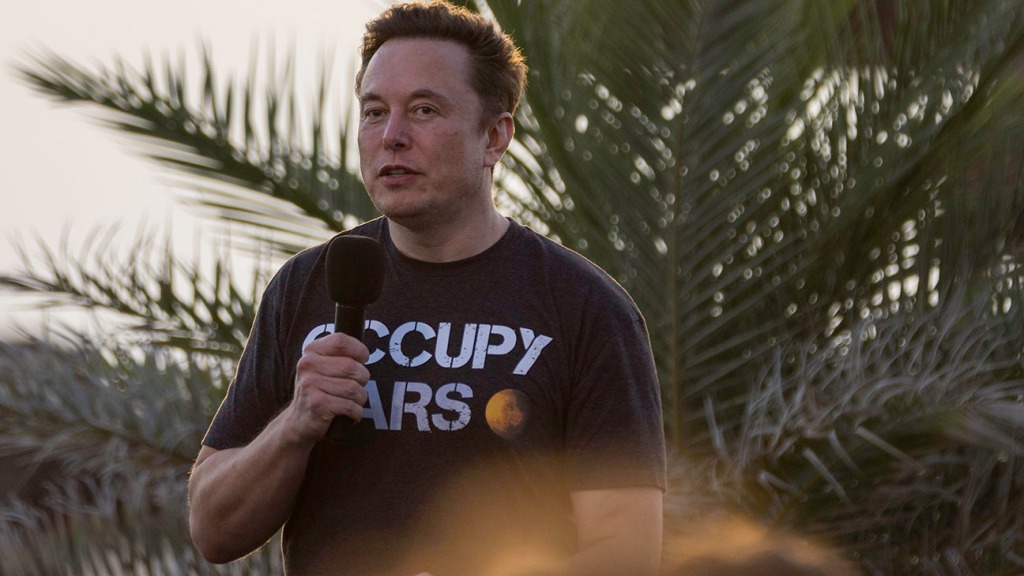
On May 4, 2022, the week after Twitter’s board of directors unanimously approved Elon Musk’s takeover offer, Sarah Personette, Twitter’s chief customer officer and its liaison to the advertising community, hopped on a stage in a glass-encased room at New York’s South Street Seaport to tell the audience of dozens of media buyers and major ad partners that she was filled with “gratitude.”
“Your partnership makes us better each and every day, and we are exceptionally grateful for how you stand with us and how we work together to do incredible things,” she told the crowd for the advertising presentation, adding that Twitter was “committed to deepening the relationships with the top rightsholders and premium content publishers around the world and across this country.”
“This is extremely important to us because we know that it matters to connect your brands to the people that matter to you,” the Twitter executive added.
Five months and 22 days later on the evening of Oct. 26, Personette sat down to talk Twitter advertising again, this time for an audience of one: Elon Musk.
The result of that conversation, which emphasized the importance of brand safety to the platform, was Musk’s open letter to advertisers, which he tweeted on Oct. 27. “Twitter obviously cannot become a free-for-all hellscape, where anything can be said with no consequences!” he wrote. “I also very much believe that advertising, when done right, can delight, entertain and inform you.”
It was a message meant to soothe wary marketers, unsure of what exactly Musk has in store for his powerful new toy.
Musk spent $44 billion on Twitter (he acknowledged overpaying on Tesla’s Q3 earnings call), and presumably wants to make money on the deal, or at least minimize his losses.
While he has other plans to make money, like charging for verified users to keep their blue checkmark badges, or reviving the Vine video platform that Twitter shut down in 2016 (“what could we do to make it better than TikTok?” he asked the popular YouTube creator MrBeast), there’s no ignoring that advertising is going to be a critical piece of the puzzle.
After all, ads made up 89 percent of Twitter’s 2021 revenue, according to its annual report.
But major advertisers, who have traditionally been small-c conservative when it comes to where they spend their dollars, are beginning to raise concerns.
General Motors, one of the largest ad buyers in the country, said that it is “temporarily pausing” its paid advertising on Twitter, adding that “we are engaging with Twitter to understand the direction of the platform under their new ownership.”
A source close to a major national ad buyer tells The Hollywood Reporter that for companies like GM, brand safety is paramount, with TV networks and streaming services like Hulu (not to mention social platforms like Snapchat) able to guarantee brand-safe environments around their ads.
Musk has promised to blow up Twitter, promising both unfettered free speech but also a “warm and welcoming” environment.
It’s a new vision for Twitter, which has made the centerpiece of its advertising pitch a platform where the world talks about what is happening, often built around more brand-safe events like the FIFA World Cup and the Emmys.
Musk’s open letter showed that he understands Twitter won’t be able to survive without advertising. But unfettered free speech without what he called a “free-for-all hellscape” is a mighty difficult ask, and other marketers are weighing whether to join GM in pausing or reevaluating their campaigns, the ad source said, though that could mean a reduction in ad spending, rather than an outright pause.
Brad Adgate, a media consultant and former executive at Horizon Media, says that “it will be a tall task to ease Madison Avenue,” but there are steps Musk can take to bolster the relationship, with recognizing the importance of brand safety being a top priority including “reinstate a Twitter board that includes marketing execs and agency personnel.”
He could also “stop posting controversial tweets,” Adgate adds, though Musk’s history on the platform suggests that move is unlikely.
However, in advertising, the money follows the audience. If Musk is successful in creating his “common digital town square,” where the world wants to share and discuss and debate ideas and what’s happening, or reviving Vine as a viable competitor to TikTok, the ad dollars will follow.
If it devolves into just another Truth Social or Parler, then it may be stuck cutting deals with MyPillow and collectible gold coin sellers, a visible reminder of $44 billion washed away.

